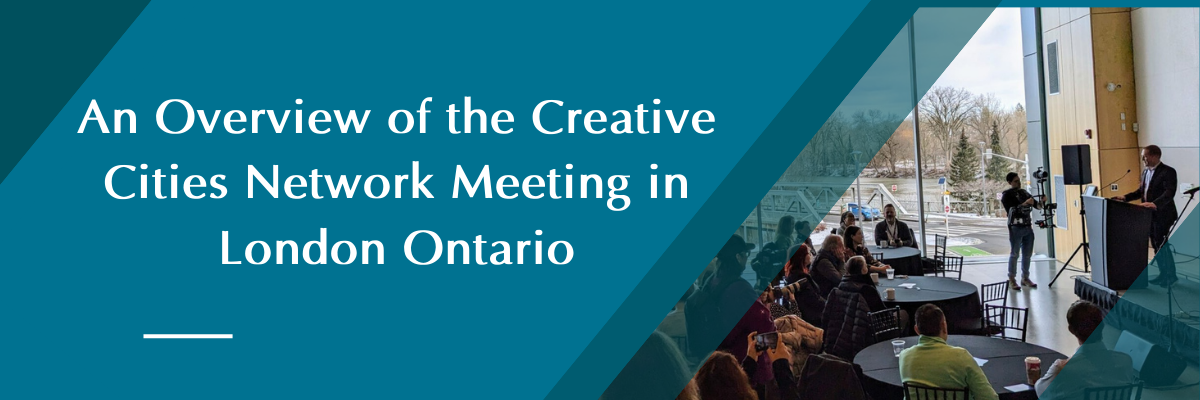
London joined the UNESCO Creative Cities Network as the first Canadian City of Music in 2021 and in the last week of February 2024, London, Ontario hosted the international meeting of the UNESCO Creative Cities of Music.
The Creative Cities Network covers seven creative fields: Crafts and Folk Art, Media Arts, Film, Design, Gastronomy, Literature and Music. Currently it has 75 Cities of Music and almost 400 member cities in total.
The Importance of the Creative cities Network
But the network’s goal is more than promoting culture. Cities are today home to more than half the world’s population and three quarters of its economic activity, including a large share of the creative economy.
The 2030 Agenda highlights the importance of cities in achieving sustainability, emphasizing inclusivity, safety, resilience, and the role of culture and creativity. Local efforts to stimulate cultural sectors, enhance public engagement, and foster innovative public approaches are key to sustainable urban growth. Collaboration and knowledge exchange are vital, as seen in UNESCO’s Creative Cities Network, which aids cities in leveraging creativity for balanced development.
The international gathering included partners from:
The local ecosystem
- Tourism London
- Sunfest
- Don Wright Faculty of Music at Western
- Ontario Institute of Audio Recording Technology
- Fanshawe College’s Music Industry Arts program
- London Arts Council
- London Chamber of Commerce
- London Music Hall of Fame
- London Economic Development Corporation
- RnRBnB
- Pillar Nonprofit Network
Other Canadian cities
- Canadian Commission for UNESCO – CCUNESCO
- Canada’s Music Incubator – CMI
- Quebec – City of Literature
- IndieWeek – DIT
- Folk Music Ontario
The international Network
- Daegu (South Korea)
- Auckland (New Zealand)
- Tallinn(Estonia)
- Norrköping (Sweden)
- Hannover (Germany)
- Montreux (Switzerland)
- Kansas City (USA)
- Detroit (USA)
The week was filled with a variety of activities such as presentations, tours, panel discussions, and (of course) plenty of music, offering participants a platform to exchange experiences and insights.
The involvement of organizations from the public, private, nonprofit, and academic sectors highlights the significance of this initiative in creating economic opportunities and advancing social inclusion. Examples from cities globally and within Canada illustrate successful implementations.
Upcoming blog posts will explore these examples in greater detail, focusing on local, national, and international perspectives.
Article originally Posted on www.sdgcities.ca
